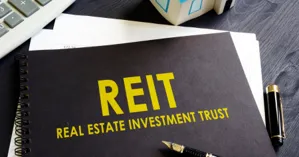
There are many benefits to investing in real estate with little or no money. For example, it’s excellent passive income, you can enjoy tax benefits, and it diversifies your portfolio, to name a few. But if you’re not careful, investing can end up costing you more than you earn. Here are the dos and don’ts of investing in real estate with little money.
Understanding Real Estate Investing

Real estate investing involves purchasing, owning, managing, renting, and selling properties for profit. It’s a powerful way to build wealth and generate passive income, but it requires a solid understanding of the real estate market, financing options, and investment strategies. Real estate investments can be broadly categorized into two main types: direct property investment and indirect property investment.
Direct property investment involves buying and owning physical properties, such as single-family homes, multi-family units, or commercial buildings. This type of investment allows you to have direct control over the property and its management, but it also requires significant time, effort, and capital.
On the other hand, indirect property investment involves investing in real estate investment trusts (REITs), real estate mutual funds, or real estate crowdfunding platforms. These options allow you to invest in real estate without the need to manage physical properties. REITs, for example, are companies that own and operate income-producing real estate, and they offer a way to invest in a diversified portfolio of properties through a publicly traded company.
Understanding these different types of real estate investments and how they work is crucial for making informed decisions and maximizing your returns.
The 1% Real Estate Investing Rule

Before you start, you need to determine if the rental property's income will cover its cost and make a profit. Let's face it, unless you just want a tax deduction, the point of this is to generate income. Why bother jumping through the hoops if there's no profit to be had?
The one percent rule is a quick way to gauge your potential profit. It states that the monthly rent should be at least one percent of the total purchase price.
For example, a $200,000 property should generate at least $2,000 in income monthly. That would cover monthly expenses, like a mortgage, and put some money in your pocket.
Some experts question the one percent rule because it doesn’t take into several items like:
- insurance
- property taxes
- maintenance
- other operating costs
So, when calculating the rent-to-price ratio, multiply the purchase price with potential costs by one percent to get a more accurate number.
Knowing this formula will save you from future potential hardship.
Financing Options for Real Estate Investment

Financing is a crucial aspect of real estate investing, especially when you have limited funds. There are several financing options available for real estate investors, each with its own advantages and disadvantages:
- Cash Financing: Paying cash for a property eliminates the need for a mortgage and can provide a higher return on investment. However, it requires substantial upfront capital, which may not be feasible for everyone.
- Mortgage Financing: Obtaining a mortgage from a bank or other financial institution can provide the necessary funds to purchase a property. This option allows you to leverage your investment, but it also comes with the responsibility of monthly mortgage payments and interest.
- Hard Money Lenders: Hard money lenders offer short-term, high-interest loans for real estate investors. These loans are typically easier to obtain than traditional mortgages, but they come with higher interest rates and shorter repayment terms.
- Private Money Lenders: Private money lenders offer loans from individuals or companies that are not affiliated with traditional banks. These loans can be more flexible and quicker to obtain, but they may also come with higher interest rates and less favorable terms.
- Seller Financing: Seller financing involves the seller providing financing to the buyer, often in the form of a mortgage or lease option. This can be a great option if you have difficulty obtaining traditional financing, but it requires negotiation and agreement with the seller.
- Partnerships: Partnering with other investors or companies can provide access to financing and shared risk. This option allows you to pool resources and expertise, but it also means sharing profits and decision-making.
Choosing the right financing option depends on your financial situation, investment goals, and risk tolerance. It’s important to carefully consider each option and seek professional advice if needed.
"Do's" to Buying Investment Property
If you have limited funds to start with as a real estate investor, it’s important to get the biggest bang for the buck. The point, after all, is to pay a good price that will give you high returns. There are a few ways to do this.
Home for Primary Residence
It’s possible to buy a home to live in with little or no money down, then after a year, move out and use it as a rental property. A VA or USDA loan is available to buy a house, but they both require the home to be your primary residence for a year.
Keep in mind that the downpayment and credit score requirements for a primary residence are less stringent than for a rental property. So, living in the home first helps you avoid the strict requirements of an investment property loan.
You could also build home equity in that year and then cash it out to fund your next property.
Buy a Duplex
You can finance a two-unit duplex with a FHA loan. And the downpayment on an FHA loan can be as low as 3.5 percent. It's available for one to four units. You must live in one of them, and then you can rent out the other units.
You can cover your mortgage and put some cash in your pocket.
Home Equity Line of Credit
Turn your equity into a down payment on a rental property. If you have a lot of equity, take out a home equity line of credit (HELOC).
Most HELOCs will create a line of credit equal to 70 to 80 percent of your home’s current equity.
For example, if the home is worth $300,000 and you owe $100,000, you can receive 70 to 80 percent of that remaining $200,000.
A lot of people who flip homes use HELOCs.
The interest rate is usually one to two percent above the prime rate. That would currently put it about eight to ten percent on average.
But keep in mind the HELOC is a variable rate who's interest could increase or decrease. It is also seen as a second mortgage on your house.
Talk to Someone Who Invests in Real Estate
One of the best ways to learn about investing in real estate is to talk to an experienced real estate investor. Being a landlord is a lot of work; it’s not as easy as it looks. And if money is tight and you can’t afford a management company, everything is up to you.
You must ensure compliance with numerous local and federal laws. Some states have strong tenant rights laws. You’ll also expose yourself to financial and legal risks if you don’t comply with:
- housing discrimination laws
- proper escrow procedures (saving deposits)
- building codes
It looks good on paper, after all its passive income. But assess the opportunity and be realistic about your cash flow.
Talking to someone who’s already investing in real estate can help you navigate some of these curves.
Location is Imperative
There are many rental properties available, but be selective about where you buy. Know the city and its different neighborhoods. Talk to real estate agents and other people who have invested in real estate.
Look at property values in the different neighborhoods. If something seems too good to be true, look around; it might not be a desirable area.
Negotiate a Good Price
The more you pay, the less profit you make. Negotiate the best price you can, especially if you are investing with little or no money. One of the best things about investment property is that, unlike a home, you don’t have an emotional connection. You then can be objective.
Since you can be objective, don’t be afraid to make a low-ball offer to test the waters. If the price isn’t right, be prepared to walk. If the price is way too low, do your homework.
Real Estate Crowdfunding and REITs

Real estate crowdfunding and REITs are popular alternatives to traditional real estate investing, offering unique opportunities to invest in real estate with lower capital requirements and less direct involvement.
-
Real Estate Crowdfunding: Platforms such as Fundrise, Rich Uncles, and RealtyMogul allow individuals to invest in real estate projects or properties through online platforms. These platforms often have lower minimum investment requirements, making it easier for individuals to start investing in real estate. Crowdfunding allows you to invest in a variety of projects, from residential developments to commercial properties, and diversify your investment portfolio.
-
REITs: Real estate investment trusts (REITs) such as Vanguard Real Estate ETF, Schwab U.S. REIT ETF, and Realty Income allow individuals to invest in a diversified portfolio of properties through a publicly traded company. REITs are required to distribute a significant portion of their income to shareholders, providing a steady stream of rental income. Investing in REITs offers liquidity, diversification, and the potential for attractive returns without the need to manage physical properties.
Both real estate crowdfunding and REITs provide opportunities to invest in real estate with less capital and effort, making them attractive options for those looking to diversify their investment portfolio and generate passive income.
Wholesaling and Bird Dogging
Wholesaling and bird dogging are two strategies used by real estate investors to find and acquire properties without the need for significant capital.
-
Wholesaling: Wholesaling involves finding undervalued properties and selling them to other investors at a markup. As a wholesaler, you act as a middleman, identifying properties that are priced below market value and negotiating contracts with sellers. You then assign these contracts to other investors for a fee. Wholesaling requires strong negotiation skills, a good understanding of the real estate market, and a network of potential buyers.
-
Bird Dogging: Bird dogging involves finding potential investment properties and passing them on to other investors in exchange for a fee. As a bird dog, you scout for properties that meet specific criteria set by investors and provide them with leads. This strategy requires a keen eye for good deals, knowledge of the local market, and a network of real estate investors.
Both wholesaling and bird dogging can be lucrative ways to generate income and build wealth in real estate investing. They require minimal capital investment but demand a solid understanding of the market, strong negotiation skills, and a network of contacts. These strategies can be a great starting point for new real estate investors looking to gain experience and build their investment portfolio.
"Don’ts" to Investing
Real estate investing can be lucrative, but there are also some pits you can fall into when making that purchase. And if you have limited funds, you can’t afford to make a big mistake. Here are some don’ts to investing in real estate.
Rushing Through Cash Flow Projections
The numbers have to work. This is especially true with a property you want to buy and hold onto. You must make a solid cash flow projection to ensure you’re making a good investment.
Do the research and obtain accurate income and expense figures. Build a model to map it out. The model should have:
- cost of capital
- expected vacancy rate
- taxes
The whole point is to determine your return on investment (ROI). Don’t pretty up the numbers by over projecting your income and under projecting your expenses.
If you can’t make the numbers work, it’s time to look for a different property.
Wait to Purchase a Second Property
If you have one rental property, the temptation is to jump into another. But don’t try to purchase another one until the first is earning revenue. The worst thing you can do is to have two mortgages and too little income to cover them. Instead wait until you have a steady flow of revenue from the first property and that it’s sustaining itself.
Don’t Expect Wealth Immediately
You're not going to get rich overnight. This is often a misconception among first-time investors. If you can buy dozens of properties at once, you might be able to generate a great deal of income to line your pockets with.
But when you're buying only one, it'll take some time before the investment pays off.
Don’t Rush into a Second Property
Don’t buy a second property until you know the ins and outs of your first property. Inexperienced buyers rush into buying a property before they’ve learned everything they can about renting a property. This is a surefire road to disaster.
Managing multiple properties takes time and knowledge. And if you don’t have the first one down yet, you may set yourself up for some financial hardships.
Don’t Get Emotionally Involved
If you're flipping, don't put the most expensive materials in the house. This is not your home; it's an investment property. It doesn't need to have Italian marble on the countertops.
Use Experts for Some Jobs
Don’t go it alone. Find the right experts like:
- attorney
- tax accountant
- real estate agent
And don't try to manage the building on your own. Consider hiring a management company to take those midnight calls.
Don’t Rely Only on Sellers Documentation
Do your due diligence. Ensure all the documentation is in order. Do a title search and purchase title insurance.
Check for liens on the property. You don't want to find out there's a problem at closing.
Conclusion
Investing in real estate is exciting. Owning real estate can help build wealth. There are several ways to buy real estate that don’t take a big bank account. But there are some obstacles that you must overcome. The best course of action is to do the research and don’t get emotionally attached to a property.



